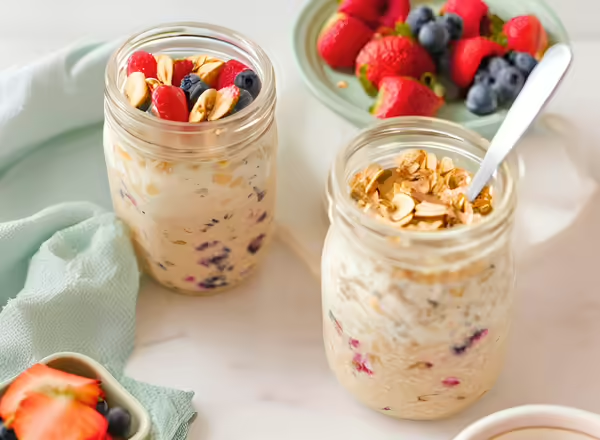
It’s inevitable that we all get older, but as my grandpa used to say, “it’s better than the alternative!” Our bodies experience many changes as we age, including those that we can see, like gray hair or wrinkles and those not as visible, such as the stiffening of our blood vessels and arteries causing the heart to work harder to pump blood. We may also lose lean muscle mass, and our bones can shrink in size and density, weakening them and increasing the risk of fractures. Plus, our large intestine goes through structural changes that may result in constipation. While all of this may sound depressing, taking care of our bodies and giving it what it needs can improve our quality of life so that we can truly enjoy our golden years.
Eat a heart healthy diet to lower the risk of heart disease or stroke. This means limiting saturated fats, which in excess can raise LDL cholesterol. Saturated fats are solid at room temperature and generally come from animal fats like red meats, butter, whole milk, and cheese. Lower sodium intake by eating more meals at home and choosing low sodium or no-added-salt foods, like canned beans, broth, and vegetables. Calcium and vitamin D are important nutrients for bone health. Milk, yogurt, dark leafy greens, and salmon are foods to include in the diet. Dietary fiber can help lower cholesterol and prevent constipation. Fruits, vegetables, whole grains, and legumes are all good sources of fiber.
Some nutrient needs increase as we age. Older adults need more protein than when they were younger to help preserve muscle mass. Lean meat, poultry, fish, eggs, legumes, nuts, nut butter and soy products are sources of protein. Similarly, our body’s ability to absorb vitamin B12 decreases with age, and therefore, we need to focus on getting enough of this nutrient to avoid deficiency. Vitamin B12 is found in animal products, such as tuna, salmon, chicken, and eggs. Nutritional yeast and fortified cereals may be a nonvegetarian source. Make the smart food choices for healthy aging!
About the Author
Jenna Smith is a Nutrition and Wellness Educator with University of Illinois Extension, serving Livingston, McLean, and Woodford Counties. Smith uses her experience as a registered dietitian nutritionist to deliver impactful information and cutting-edge programs to Livingston, McLean, and Woodford Counties and beyond.
